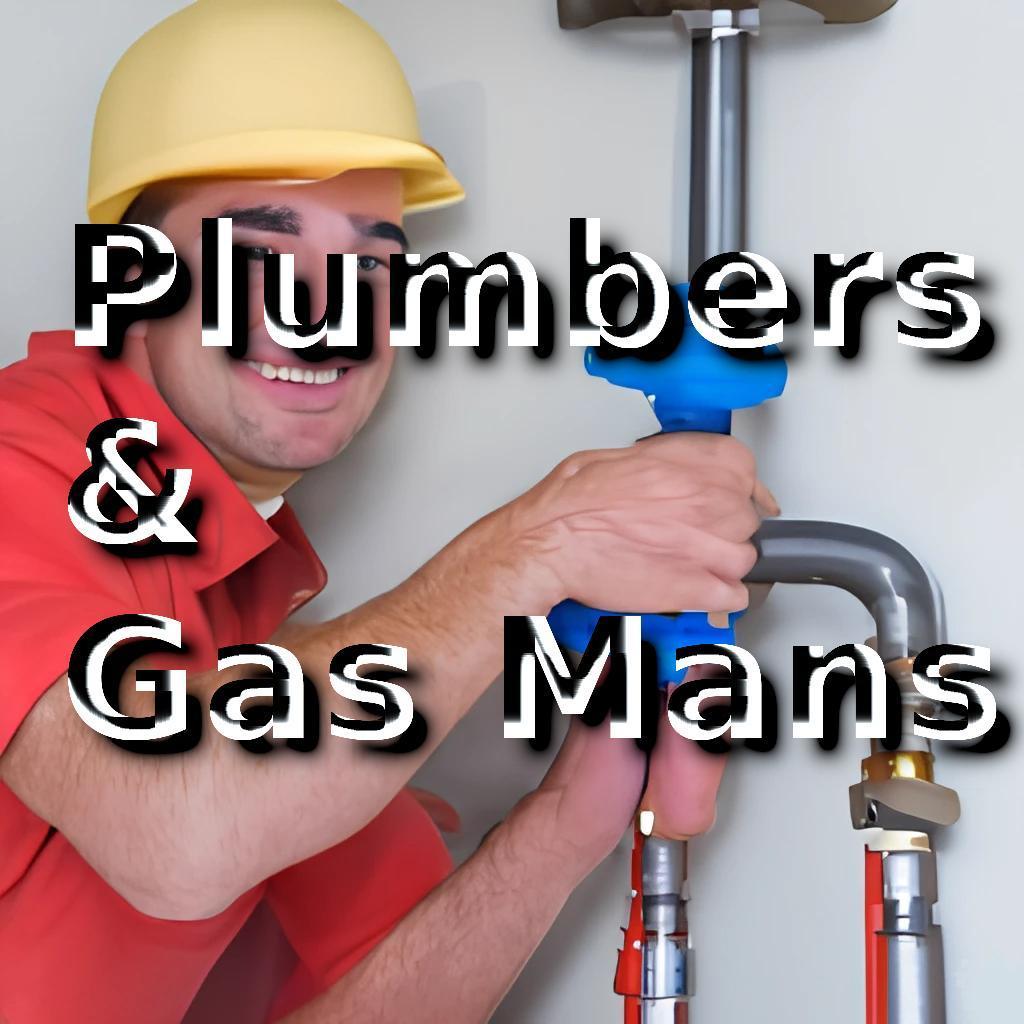








In the intricate of home maintenance, plumbers and gas professionals emerge as the unsung heroes, ensuring the smooth flow of water and the safe operation of gas appliances. From fixing leaky faucets to installing gas lines, their expertise is indispensable for every homeowner. Let's embark on a journey through the labyrinth of pipes and flames, exploring useful tips for both plumbing and gas work to empower homeowners in navigating these essential aspects of household maintenance.
Leak Detective: Early Signs and Quick Fixes for Plumbing Issues
Plumbing problems often start as subtle hints before turning into major headaches. Keep an eye out for signs such as slow drains, water stains, or unusual noises. Address minor issues promptly by tightening loose fittings, cleaning out drains with a mixture of baking soda and vinegar, and checking for visible leaks. Early intervention can prevent small concerns from escalating into major plumbing disasters.
Know Your Shut-Offs: The First Line of Defense in Emergencies
Understanding the location of shut-off valves is crucial for both plumbing and gas emergencies. Familiarize yourself with the main water shut-off valve for your home, typically located near the water meter. Similarly, know the location of the gas shut-off valve for quick response in case of a gas leak. Being able to swiftly cut off the water or gas supply can mitigate potential damages and ensure safety.
Tools of the Trade: Essential Plumbing and Gas Work Equipment
While major plumbing and gas work should be left to professionals, having a basic set of tools can help in handling minor issues. A plunger, pipe wrench, adjustable wrench, and pipe cutter are essential for basic plumbing tasks. For gas work, ensure you have a gas leak detector, pipe thread sealant, and appropriate wrenches. Always prioritize safety and consult professionals for complex tasks.
Preventative Maintenance: Extending the Lifespan of Plumbing Systems
Regular maintenance can significantly extend the lifespan of your plumbing systems. Flush water heaters annually to remove sediment buildup, clean aerators in faucets, and inspect for any signs of water damage. In colder climates, insulate pipes to prevent freezing. These preventative measures not only enhance performance but also save you from costly repairs down the line.
Gas Safety Basics: What Every Homeowner Should Know
Gas work demands a heightened level of caution due to the potential risks involved. Always hire licensed professionals for gas installations and repairs. Familiarize yourself with the smell of natural gas, which is typically odorless but has a distinct odorant added for safety. If you detect a gas leak, evacuate the premises immediately and call the gas company or emergency services.
Appliance Awareness: Safe Practices for Gas Appliances
Gas appliances, from stoves to water heaters, require specific safety measures. Ensure proper ventilation for gas appliances to prevent the buildup of carbon monoxide. Regularly inspect pilot lights for consistent ignition, and be vigilant for any unusual smells or sounds. If in doubt about the safety of a gas appliance, consult a qualified professional for inspection and maintenance.
The Art of DIY Plumbing: When to Tackle It Yourself
While major plumbing projects are best left to professionals, there are DIY tasks you can handle. Replacing a faucet, fixing a running toilet, or installing a new showerhead are common projects that many homeowners can tackle with the right tools and guidance. However, if the issue seems complex or involves the main plumbing infrastructure, it's wise to call in a professional plumber.
Professional Partnerships: Building a Relationship with Trustworthy Services
Establishing a relationship with reliable plumbers and gas professionals is akin to having a healthcare provider for your home. Research local professionals, read reviews, and ask for recommendations. Knowing who to call in case of an emergency or for routine maintenance builds a sense of security and ensures that you have a trusted expert to turn to when needed.
Gas technicians and plumbers share some similarities in their industry and innovations. Here are a few examples:
Cross Training: Many gas technicians and plumbers receive cross-training in both disciplines. This allows them to have a more diverse skill set, which can be beneficial in situations where both gas and plumbing work is required.
Technological Advances: Both gas technicians and plumbers have benefited from technological advances in their industry. For example, there are now devices that can detect gas leaks and plumbing issues more accurately and efficiently than ever before.
Safety: Both gas technicians and plumbers prioritize safety in their work. They are trained to identify potential hazards and take the necessary precautions to protect themselves and their clients.
Energy Efficiency: Gas technicians and plumbers are both involved in promoting energy efficiency in homes and buildings. Gas technicians may work on installing high-efficiency gas appliances, while plumbers may work on installing low-flow plumbing fixtures.
Environmental Concerns: Both gas technicians and plumbers are becoming more involved in promoting environmentally friendly practices in their industry. For example, gas technicians may work on installing renewable energy systems such as solar panels or wind turbines, while plumbers may work on installing rainwater harvesting systems.
Overall, gas technicians and plumbers share some similarities in their industry and innovations. Both professions play an important role in maintaining the safety, functionality, and efficiency of homes and buildings.
Plumbers are skilled tradespeople who specialize in installing, repairing, and maintaining systems used for water supply, drainage, and sewage. Some of the common services that plumbers provide include:
Repair leaks and clogs in pipes, faucets, toilets, and other plumbing fixtures.
Installing and replacing plumbing fixtures such as sinks, toilets, showers, and water heaters.
Repairing or replacing damaged or outdated pipes and sewer lines.
Clearing blocked drains and sewer lines using various tools and techniques.
Detecting and repairing gas leaks in homes and commercial properties.
Performing routine maintenance on plumbing systems to ensure they function properly.
Designing and installing new plumbing systems in new construction or renovation projects.
Providing emergency plumbing services 24/7 for urgent situations such as burst pipes or overflowing toilets.
Plumbers play an essential role in ensuring that homes and commercial properties have access to clean water and functioning plumbing systems.
Plumbers use a variety of techniques and tools to perform their work. Some of the most common techniques and works that plumbers use include:
Pipe Installation: Plumbers are trained to install different types of pipes such as copper, PVC, and PEX for water supply and drainage systems. They use different types of fittings and connectors to connect pipes and fixtures.
Pipe Repair: Plumbers repair leaking pipes, damaged pipes, and broken pipes using various techniques such as welding, brazing, and soldering. They also replace sections of damaged pipes when necessary.
Drain Cleaning: Plumbers use various methods to clean clogged or slow-running drains. They may use a plunger, plumbing snake, or hydro-jetting equipment to remove blockages from drains and sewer lines.
Fixture Installation: Plumbers install and replace various plumbing fixtures such as sinks, toilets, faucets, showers, and bathtubs. They ensure that the fixtures are properly secured and connected to the water supply and drainage system.
Water Heater Installation and Repair: Plumbers install and repair various types of water heaters such as gas, electric, and tankless water heaters. They also provide routine maintenance services to ensure that the water heater functions efficiently.
Gas Line Installation and Repair: Plumbers install and repair gas lines for homes and commercial properties. They detect gas leaks and repair damaged gas lines to ensure safety.
Plumbers are skilled professionals who use various techniques and tools to provide essential services related to water supply, drainage, and sewage. They play a critical role in ensuring that homes and commercial properties have functioning plumbing systems.
The licenses that a plumber must have can vary depending on the location and type of work they perform. In general, most states and municipalities require plumbers to be licensed in order to work in the plumbing trade. Some common types of plumbing licenses include:
Journeyman License: This is a basic plumbing license that allows an individual to work as a plumber under the supervision of a master plumber.
Master License: This is a more advanced plumbing license that allows an individual to work independently as a plumber and to oversee the work of other plumbers.
Contractor License: This is a license that allows an individual to operate a plumbing business and to hire and supervise other plumbers.
In addition to these licenses, plumbers may also need to obtain specialized certifications or licenses for certain types of work, such as gas line installation or backflow prevention.
To obtain a plumbing license, individuals typically need to complete a certain amount of training or apprenticeship, pass an exam, and meet other requirements such as background checks and insurance coverage. The specific requirements for obtaining a plumbing license can vary depending on the state or municipality.
While gas technicians and plumbers may have some overlapping skills and responsibilities, they are not the same profession.
Plumbers are responsible for installing, repairing, and maintaining systems used for water supply, drainage, and sewage. They work with pipes, valves, fixtures, and other plumbing components to ensure that water flows smoothly through a building and waste is removed properly.
Gas technicians, on the other hand, are responsible for installing, repairing, and maintaining gas lines and gas-fueled appliances. They work with natural gas or propane to power appliances such as water heaters, furnaces, and stoves. Gas technicians also perform safety checks, detect gas leaks, and ensure that gas appliances are functioning safely and efficiently.
While some plumbers may be licensed to work on gas lines and gas-fueled appliances, gas technicians typically have specialized training and certifications in gas line installation, repair, and maintenance. In some regions, there may be separate licensing requirements for plumbers and gas technicians.
Choosing a gas technician or plumber can be an important decision for homeowners or businesses. Here are some tips to help you choose the right professional for your needs:
Check for Licensing and Certification: Make sure the gas technician or plumber you hire is licensed and certified to work in your area. Licensing requirements can vary by state and locality, so be sure to check what is required in your area.
Ask for References: Ask the gas technician or plumber for references from past clients. Contact these clients and ask about their experience with the professional.
Look for Experience: Look for a gas technician or plumber with experience in the specific type of work you need. For example, if you need a gas line installation, look for a technician with experience in this area.
Check for Insurance: Make sure the gas technician or plumber you hire is insured. This can protect you in case of accidents or damage to your property during work.
Compare Prices: Get quotes from multiple gas technicians or plumbers and compare prices. Keep in mind that the lowest price may not always be the best value if the professional lacks experience or credentials.
Check Reviews: Look for online reviews of the gas technician or plumber. Check for both positive and negative reviews to get a balanced view of the professional's work.
Plumbing and gas work are integral aspects of maintaining a safe and functional home. By staying vigilant, understanding the basics, and knowing when to seek professional help, homeowners can navigate the world of pipes and flames with confidence. Whether it's a minor plumbing repair or a gas safety check, the partnership between homeowners and skilled professionals ensures the seamless operation of these essential systems, promoting both comfort and safety in every household.
Appreciatively, 
We use cookies
We use cookies and other tracking technologies to improve your browsing experience on our website, to show you personalized content and targeted ads, to analyze our website traffic, and to understand where our visitors are coming from. Privacy Policy.
